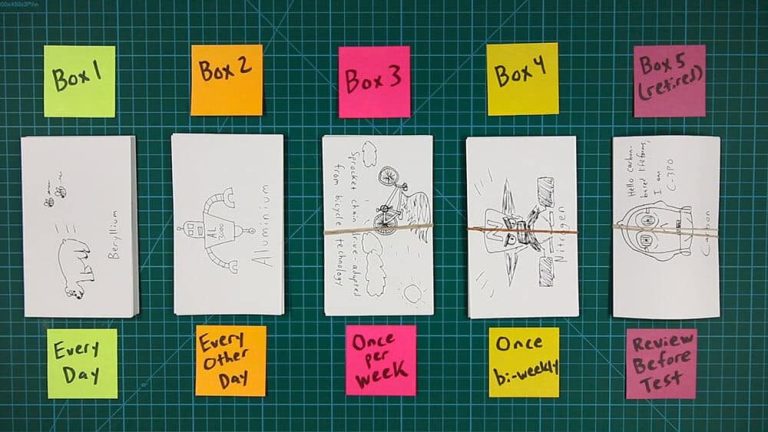How to Manage Time in High School
High school marks a pivotal transition, a period where academic demands intensify, extracurricular opportunities multiply, and social lives expand with unprecedented complexity. For many students, the sheer volume of responsibilities can feel overwhelming, leading to stress, missed deadlines, and a constant sense of being behind. However, mastering the art of time management during these formative years is not merely about staying organized; it’s about developing crucial life skills that foster academic success, reduce anxiety, and build a foundation for future endeavors, from college to career. Effective time management in high school transforms a chaotic schedule into a manageable, even enjoyable, journey.
The first fundamental step in taking control of your time is to gain a clear understanding of your commitments. Before you can manage anything, you need to know exactly what needs managing. This involves creating a comprehensive inventory of all your academic tasks, including classes, homework assignments, long-term projects, quizzes, and exams. But it doesn’t stop there. Crucially, also list all extracurricular activities: sports practices, club meetings, volunteer work, part-time jobs, and even regular social engagements. Once everything is laid out, you begin to see the full scope of your obligations, rather than letting tasks surprise you. This initial audit helps to identify potential overlaps or periods of intense demand, allowing for proactive planning.
With a comprehensive list in hand, the next critical phase involves externalizing your schedule. Relying solely on mental notes is a recipe for forgotten assignments and missed opportunities. Instead, choose a system that works for you, whether it’s a traditional paper planner, a digital calendar application on your phone, or a dedicated homework tracking app. The key is consistency. Immediately upon receiving an assignment or committing to an activity, record it with its due date or time. Break down larger projects into smaller, more manageable steps and assign individual deadlines to these sub-tasks. For instance, a research paper isn’t just “due in three weeks”; it involves “research by Monday,” “outline by Wednesday,” “first draft by next Monday,” and so on. This approach makes daunting tasks less intimidating and ensures steady progress rather than last-minute panic.
Beyond simply noting deadlines, effective high school time management requires strategic prioritization. Not all tasks carry the same weight or urgency. Learn to distinguish between what’s truly important and what can wait. A helpful framework is to consider tasks based on their urgency and importance. High-priority items are typically those with imminent deadlines, significant weight in your grades, or critical impact on your commitments. Less urgent but still important tasks might be long-term projects that benefit from early starts. By focusing your energy on the most impactful tasks first, you ensure that critical responsibilities are always addressed, even if some lower-priority items need to be deferred. This skill of triage is invaluable, not just for high school, but for managing complex workloads throughout life.
Creating a dedicated study environment and minimizing distractions are also paramount. Trying to complete homework in a noisy, chaotic space, or with your phone constantly buzzing, severely hampers productivity. Identify a quiet, well-lit area where you can focus without interruption. During dedicated study blocks, put your phone away or in “do not disturb” mode, close unnecessary tabs on your computer, and communicate to family members that you need uninterrupted time. While it might seem challenging initially, training your brain to associate a specific space and time with focused work significantly improves efficiency. Short, focused bursts of study are often far more productive than longer periods of distracted effort.
Finally, effective time management is inextricably linked with self-care. It’s not about packing every minute of your day with activities; it’s about creating a sustainable schedule that includes adequate rest, nutrition, physical activity, and downtime. Skimping on sleep to finish an assignment might seem productive in the short term, but it leads to burnout, decreased cognitive function, and compromised immune health in the long run. Schedule breaks, allocate time for hobbies and social activities, and ensure you get sufficient sleep. These are not luxuries; they are essential components of maintaining mental and physical well-being, which directly impact your ability to focus, learn, and perform academically. A balanced life is a productive life, and establishing this balance in high school sets a healthy precedent for the future.
In essence, time management in high school is a skill, not an innate talent. It’s developed through consistent practice, self-awareness, and a willingness to adapt. By meticulously tracking commitments, utilizing a reliable planning system, prioritizing tasks strategically, creating a conducive study environment, and prioritizing self-care, high school students can transform their overwhelming schedules into empowering roadmaps. This mastery not only leads to better grades and reduced stress during these critical years but also equips them with indispensable organizational abilities that will serve as cornerstones for success in college, career, and beyond.







